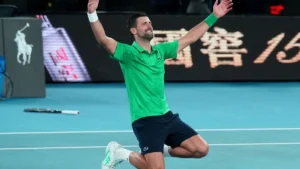Siddhartha Aggarwal from Bengaluru has made history by becoming the oldest Indian to swim solo across the English Channel. On August 29, at the age of 49, Aggarwal completed the 42 km swim in 15 hours and six minutes. His remarkable achievement surpasses the previous record set by Srikaanth Viswanathan, who swam the Channel solo at age 46 in 2018.
Journey to Achievement
Aggarwal’s quest began in 2018 when he first crossed the English Channel as part of an eight-member relay team. Despite initially doubting his ability to complete the solo swim, Aggarwal’s dedication and rigorous training under the guidance of coach Satish Kumar led to his success. The last 10 kilometers of the swim were particularly challenging due to high tides and strong winds.
Training and Preparation
Aggarwal’s preparation for this historic swim was extensive, involving 15 months of rigorous training. Despite his busy schedule as an entrepreneur and family man, Aggarwal maintained a disciplined training regimen. His coach, Satish Kumar, emphasized that the success was a result of Aggarwal’s unwavering commitment and preparation.
Inspirational Achievement
Aggarwal’s achievement serves as a powerful inspiration for amateur swimmers of all ages. His dedication and perseverance demonstrate that significant goals can be accomplished with discipline and determination.




 Who Is Elena Rybakina, the Australian Op...
Who Is Elena Rybakina, the Australian Op...
 53 Years Later, History Falls: How Djoko...
53 Years Later, History Falls: How Djoko...
 ICC T20 World Cup Schedule 2026- Qualifi...
ICC T20 World Cup Schedule 2026- Qualifi...








